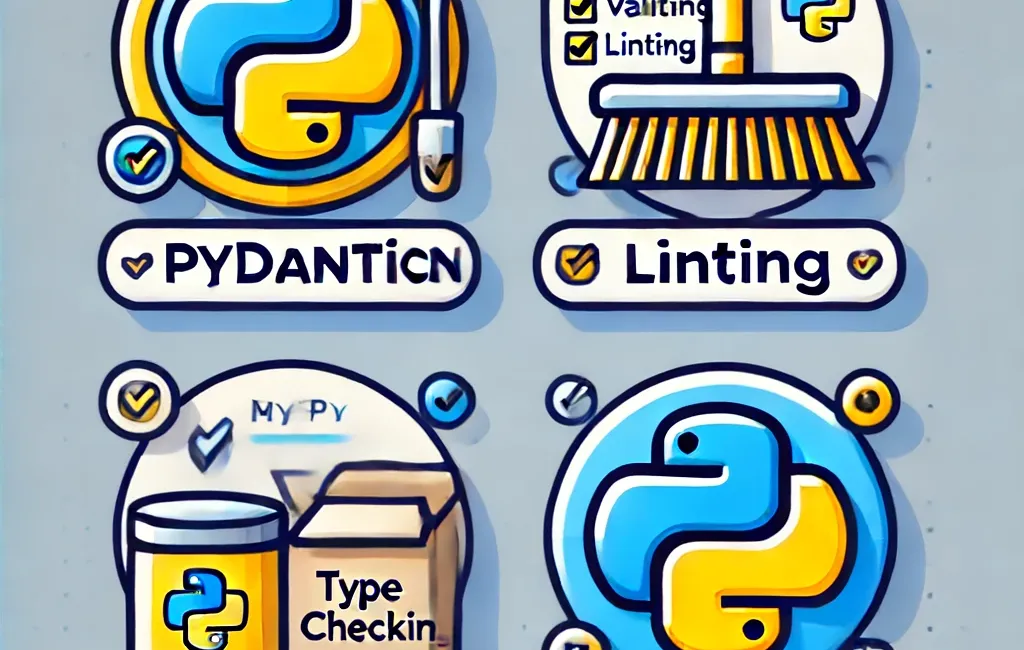In the ever-changing world of Python development, tools such as Pydantic, Ruff, MyPy, and UV have become essential for improving productivity and code quality.
Let's take a closer look at how these tools can be incorporated into your work:
Pydantic: Data Validation and Settings Management
Pydantic is a library for data validation and settings management that uses Python type annotations.
It ensures data integrity by validating and parsing data, making it perfect for handling complex configurations and data structures.
Pydantic works well with FastAPI and other frameworks, providing seamless validation of request and response data.
Key Features:
- Uses type annotations for data validation.
- Automatically parses and converts data.
- Works with FastAPI for API development.
- Provides efficient and user-friendly error handling.
Example:
from pydantic import BaseModel, ValidationError
class User(BaseModel):
id: int
name: str
age: int
try:
user = User(id=1, name='John Doe', age='five') # This will raise a ValidationError
except ValidationError as e:
print(e.json())
# Correct Usage
user = User(id=1, name='John Doe', age=25)
print(user)
Don't forget to install it with:
pip install pydanticGet "Python's Magic Methods - Beyond __init__ and __str__"
Magic methods are not just syntactic sugar, they're powerful tools that can significantly improve the functionality and performance of your code. With this book, you'll learn how to use these tools correctly and unlock the full potential of Python.
Ruff: Fast and Lightweight Linter
Ruff is an incredibly fast linter and code formatter designed to handle large codebases efficiently.
It's written in Rust and aims to provide real-time feedback without sacrificing speed or accuracy.
Ruff is designed to replace tools like Flake8 and supports a wide range of linting rules.
Key Features:
- 10-100x faster than traditional linters.
- Supports a wide range of linting rules.
- Requires minimal configuration.
- Provides fast feedback during development.
Example:
Create a .ruff.toml configuration file, with for example:
line-length = 88
indent-width = 4Run Ruff:
ruff check .
Don't forget to install it with:
pip install ruffMyPy: Static Type Checking
MyPy brings static type checking to Python.
By enforcing type hints, MyPy helps catch type-related errors early in the development process, improving code robustness and readability.
It's especially useful for large codebases where dynamic typing can lead to runtime errors.
Key Features:
- Provides static type checking for Python code.
- Helps detect and prevent type-related errors.
- Improves code readability and maintainability.
- Works with Pydantic for seamless data validation.
Example:
Consider this code example:
This article is for paid members only
To continue reading this article, upgrade your account to get full access.
Subscribe NowAlready have an account? Sign In

